Today I want to talk about two very important topics: Blockchain and Death. They might seem unrelated but actually blockchain could really make life and death easier for families. I would know. Blockchain technology could’ve helped mine when I lost my mom to cancer.
You might not care about blockchain (yet) and may be asking yourself, “What the heck does blockchain have to do with my family?”
Well, I’d like to share my story with you.
I first got introduced to blockchain when my then-date, now-boyfriend had introduced it to me in 2015. Over dinner one evening, he gave me $5 worth of Bitcoin in Coinbase and sent me links to bitcoinfilm.org, documentaries about Bitcoin that he made. I watched them because I wanted to impress him and be a good date but in all honesty, I still didn’t really care.

I pretty much did nothing about my “invisible money” and almost forgot about it until over a year later, when I attended Distributed: Health, a blockchain healthcare conference in 2016. A newbie at the time who didn’t want to look like an idiot at the conference, I picked up the book “Blockchain Revolution”to learn about this new technology and how it could change the world. It blew my mind. My view had unexpectedly changed forever.
What I learned was, blockchain had many uses beyond just the financial ones. It could fundamentally change lives across multiple industries such as healthcare and real estate. In fact, later on, I personally discovered multiple ways in which it could’ve been useful for my family.
A Bit on Blockchain
You may have heard about blockchain or Bitcoin. If you haven’t yet, I’ll try to explain it in simplified terms. Blockchain is technology in which blocks of information are strung together in a shared digital record. And Bitcoin is a digital currency that is built upon blockchain technology.
As a former scientist turned communications consultant, I still find the current explanations of blockchain too complex. However, let’s use a tree as an analogy.
Think of blockchain as a virtual tree in the forest. You can see a public record of the tree’s history in each of its rings. Over time as the tree grows, tree rings are continually added as blocks of information. Each ring holds valuable information of a snapshot in time, such as climate, age, and weather. You can always go back and get information from the tree, but the information cannot be changed. Nobody owns the tree but everyone can see it and agree on how old it is and its history.
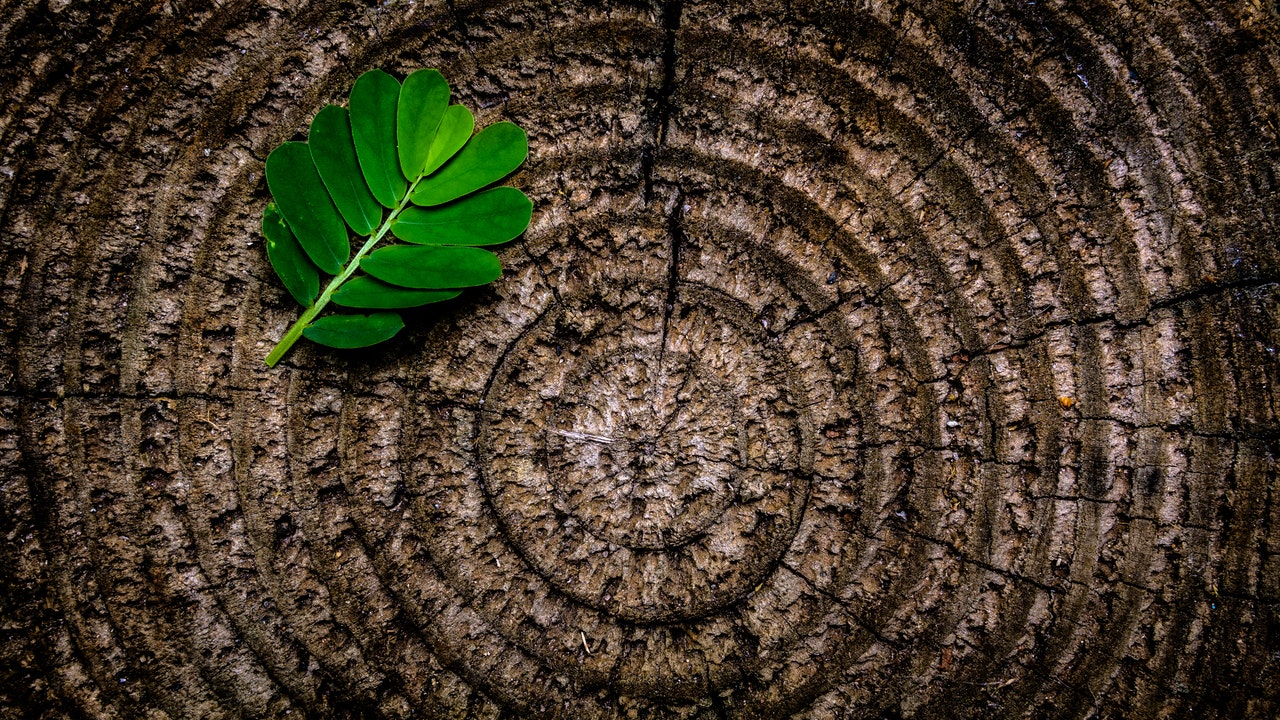
Hopefully that helps a bit. I won’t go down a technical rabbit hole on this, but if you want to learn more you can check out this blockchain guide. What you do need to know about blockchain though, is why it’s so powerful and useful.
What makes blockchain technology so useful:
- It is secure and less likely to get hacked. It leverages cryptography.
- It is trustworthy. The data is un-deletable/un-changeable.
- It is both public yet private. It is on a publicly shared, decentralized network (no one person or authority owns it), yet you can have a private key to access your own data.
People talk a lot about the financial uses of blockchain. Most mainstream media attention has only been on Bitcoin and its monetary value, which is a shame as blockchain has so many other useful applications.
My goal is to help you understand how blockchain could be used in normal life. I’m here to talk about the benefits of blockchain technology — beyond money, beyond the hype. I’m here to talk about how blockchain could make life and death easier for families.
Ways that Blockchain Could Help Make Life & Death Easier For Families
Before I go on, I’d like to get something off my chest: F*ck cancer. Really. I hate it and what it’s taken from me.
Cancer took my mom away from me last year, and I miss her so much. She was my first love, my role model and my rock. ❤
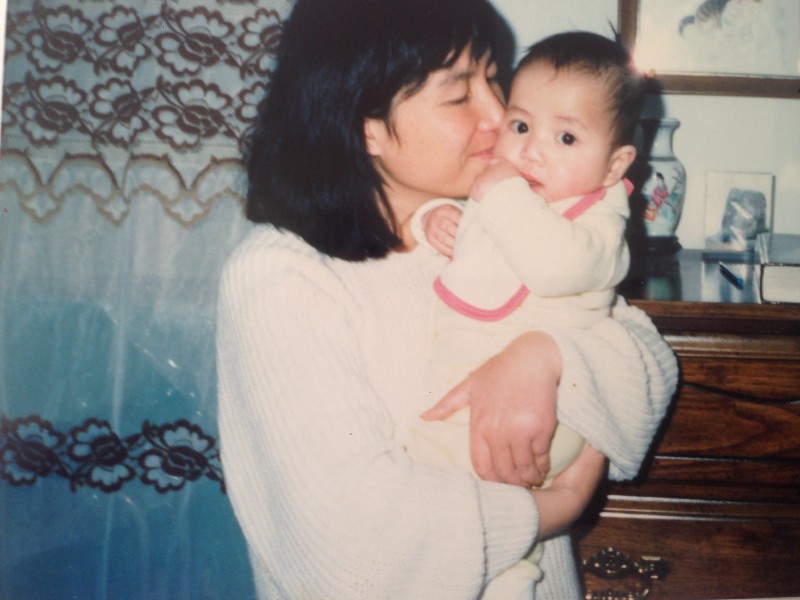
Although it’s been almost a year since my mom’s passing, my brother and I are still grieving our deep loss. Our dad also died 8 years ago, meaning that we’ve already lost both parents by our early 30s. You can imagine the emotional rollercoaster. On top of wrestling with our emotions, we’ve had to deal with logistical, legal, and administrative nightmares related to my mom’s illness and death — nightmares that maybe could’ve been avoided with blockchain.
Through this journey, I came across multiple use cases in which blockchain could’ve helped my family:
Electronic Health Records:

During our family vacation to China, my mom was admitted to the hospital when her stomach pain got worse. When we got the body scans from the hospital in China, we found out that my mom’s cancer had spread all over. When we got back to the United States, she was rushed to the emergency room straight from the airport, but the doctors couldn’t read what was written in printed out copies of her scans, nor could they obtain her medical files from China. It was unclear what treatment she received in China, so the American doctors had to guess. My mom never recovered.
What if we had access to my mom’s data from another hospital?
With blockchain: Electronic Health Records (EHRs) on the blockchain could allow for a patient to own their medical data and have it stay with them, wherever they are regardless of doctor, hospital, or country.
My mom’s patient data would be on a shared, distributed network that would be accessible via her private key. This means that her sensitive patient data would be kept secure, and she would be able to own it and access it as needed. Her information would also have been updated as soon as there was new data — for example cancer scan results. Beautifully explained in this Forbes article, a blockchain-based approach “could connect all of our medical information for the rest of their lives.”
Who’s working on this: Estonia, Medicalchain , MIT University: MedRec
Electronic Wills & Estate Planning:
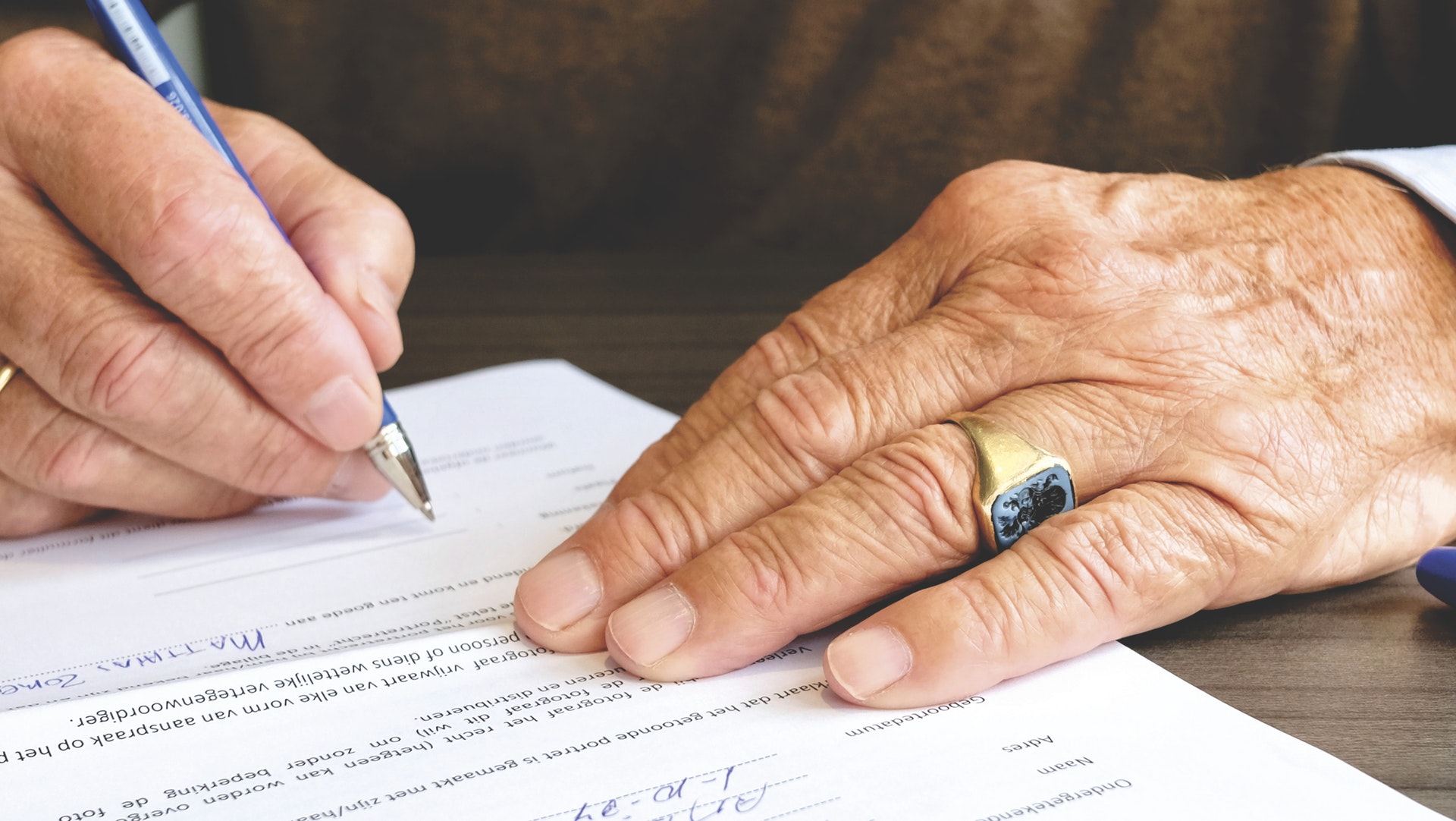
Because we didn’t expect my mom’s cancer to take such a quick turn for the worse, we didn’t get a chance to prepare a will. I had found an online site to prepare one and printed it out for her to sign at the hospital while she was still coherent. However, by the time we found witnesses to co-sign the next day, my mother was too weak to lift the pen. She wanted to sign but physically couldn’t. My mom wanted to leave a will but couldn’t.
What if we used an electronic will instead?
With blockchain: Electronic wills on a blockchain (aka “Crypto-Wills”) could allow for a person to specify who they wish to leave their possessions to, how, and with reassurance that the will would be safe and secure. Rather than being on a piece of paper which could get lost or tampered with, the will could be conveniently created and stored on a blockchain.
My mom (the testator) could’ve prepared an electronic will using software designed to create a smart contract (blockchain contract) from a template. Upon my mom’s passing, the will would self-execute her last wishes, legally distributing assets such as bank accounts or real estate from my mom’s estate to my brother and I (the beneficiaries.) It would’ve saved my family time, heartache, and legal costs. This excellent article on Wills and Testaments on the Blockchain explains it further.
Who’s working on this: Contract Vault & Eternitas.io, MyWish
Funeral Money:
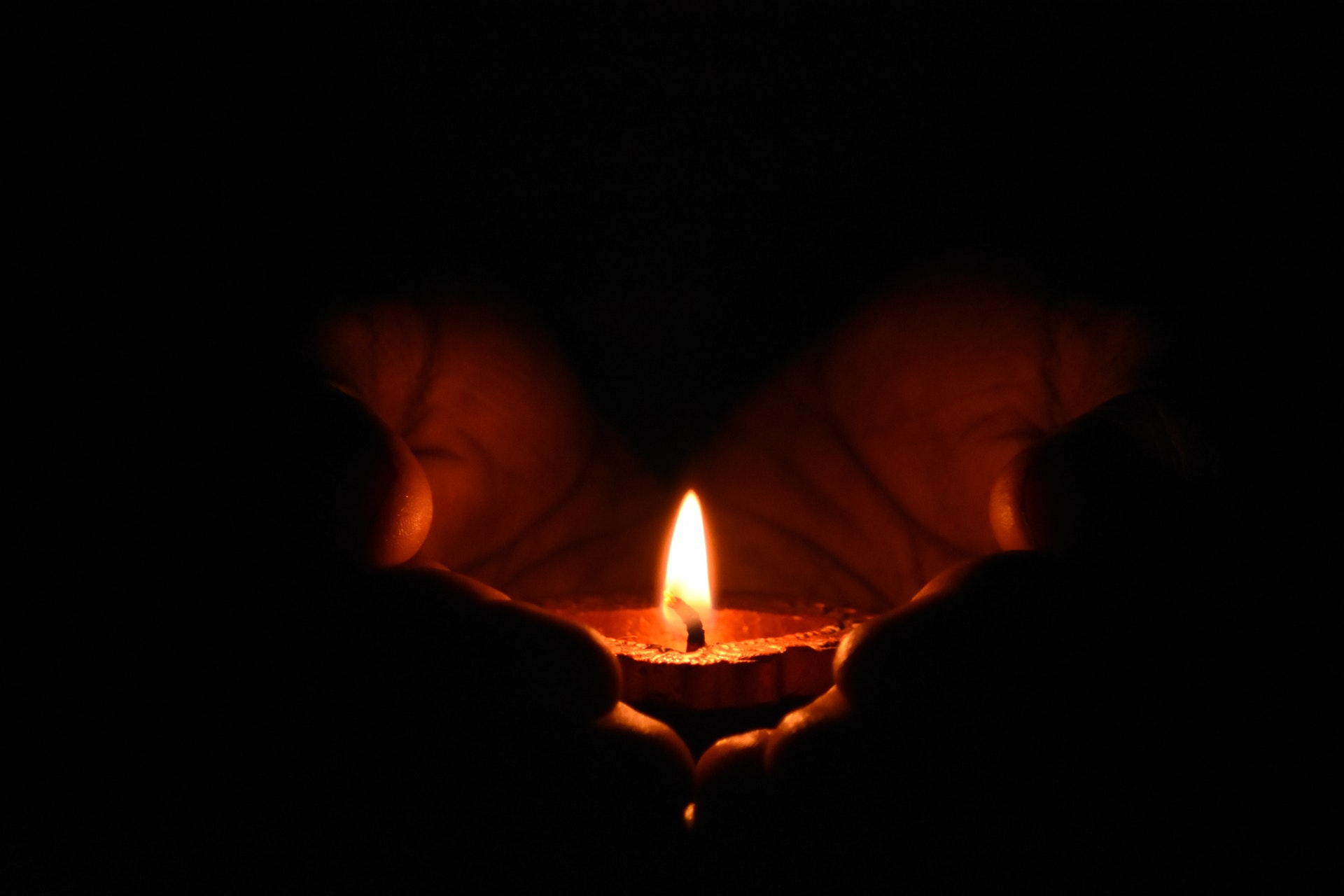
The week my mom passed, relatives and friends sent us donations to pay for the funeral. We received cash in envelopes, bank checks, and Western Union money orders. For people who lived nearby, it was easier. However, it was challenging for relatives from abroad. A relative had sent a money order from China and I nearly had a meltdown at Western Union store when they required that I had information on the exact dollar amount my relative sent AND the English name of the sender. But…my Chinese relative didn’t have an English name! So the funeral money was held up.
What if relatives could send money via cryptocurrency instead?
With blockchain: Cryptocurrencies such as Bitcoin allow people to send digital money electronically, securely, and quickly across geographical borders. All that’s needed is a digital wallet (to store cryptocurrency) and the receiver’s wallet address (to send money to.)
My relative in China could have an online Bitcoin wallet on their smartphone, and send me Bitcoin to my public wallet address. They could also use a blockchain-based money transfer service. Then upon receipt, I would exchange the Bitcoin for U.S. dollars to help pay for the funeral. (Or hopefully just be able to pay with cryptocurrency directly one day.)
Who’s working on this: Coinbase, BitPay, Wirex, Wyre and sooo many others
Real Estate (Title/Deed of Property):

My mom owned a house. Even though it was my mom’s wish that my brother and I inherited it, the process has been very difficult. By the time we realized that she may not survive her cancer, we couldn’t make it to the County Recorder to update the paper grant deed with our names. In California if a deceased person owns anything worth more than $150,000, the heirs must go through a probate case in court to inherit anything. Going through probate has been excrutiatingly painful. The last thing someone wants to do when grieving the loss of a family member is to deal with legal matters.
What if ownership of the house could be recorded and transferred digitally?
With blockchain: Property owners can transfer title of their house or other real estate on the blockchain. It then gets recorded into public record, as long as it meets legal requirements.
Before my mom passed, she could have transferred ownership of the house on the blockchain, as done in a pilot program summarized here, where “the ownership change is automatically, immutably recorded on a public record — the Bitcoin blockchain.” If the house were easily transferred, my family wouldn’t have had to go through probate, which we are still in the trenches of until this day.
Final Thoughts
I hope that you were able to learn about how blockchain could be useful for your family. Using blockchain in every day life may seem far away now, but its applications are coming soon.
Though life and death in a family can be a very somber topic, I believe that it’s incredibly important to think about it and plan appropriately before its too late. Hopefully with future advances in blockchain technology, families can more easily manage life and death.
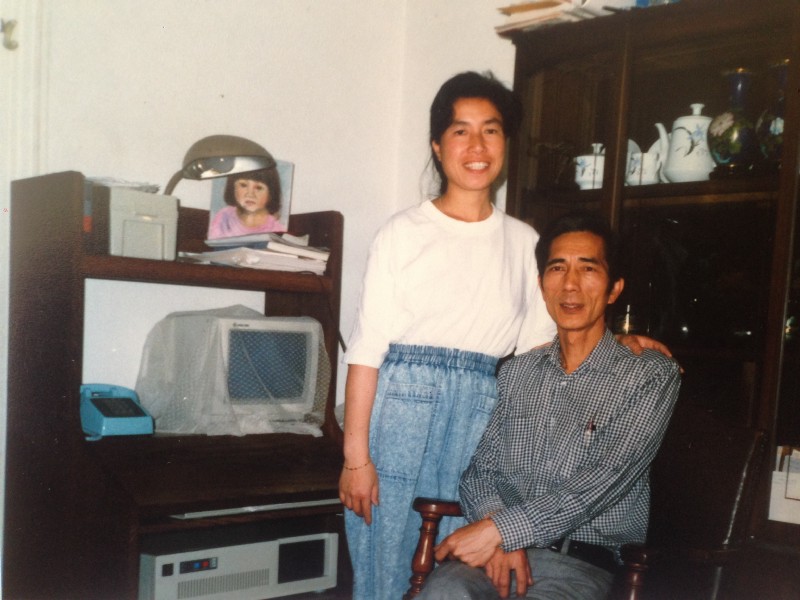
If you found this article insightful, please share and send it to any friends who might want to know what all this blockchain stuff is about! 😉
After losing both my parents to illness by my 30s, I’ve become an advocate for talking about death more openly, and have publicly shared my advice in this first-aid manual for grief here and my extraordinary journey with grief here to help others. You can follow me here on Medium for future stories of tech, death, life lessons, and beyond.
Huge thanks to: Savannah Peterson & Jacob Hansen for your valuable thoughts.
Originally published on Hacker Noon here.